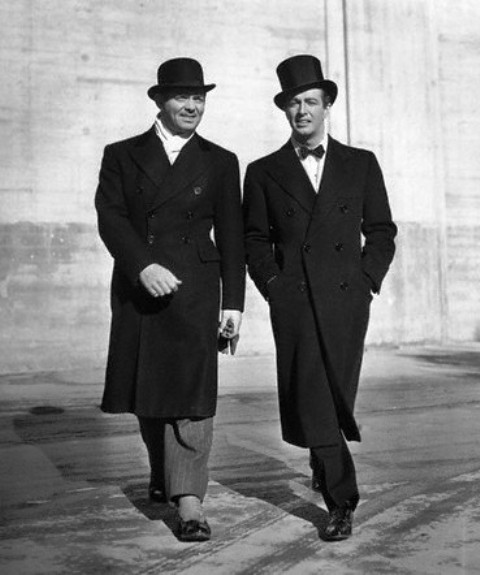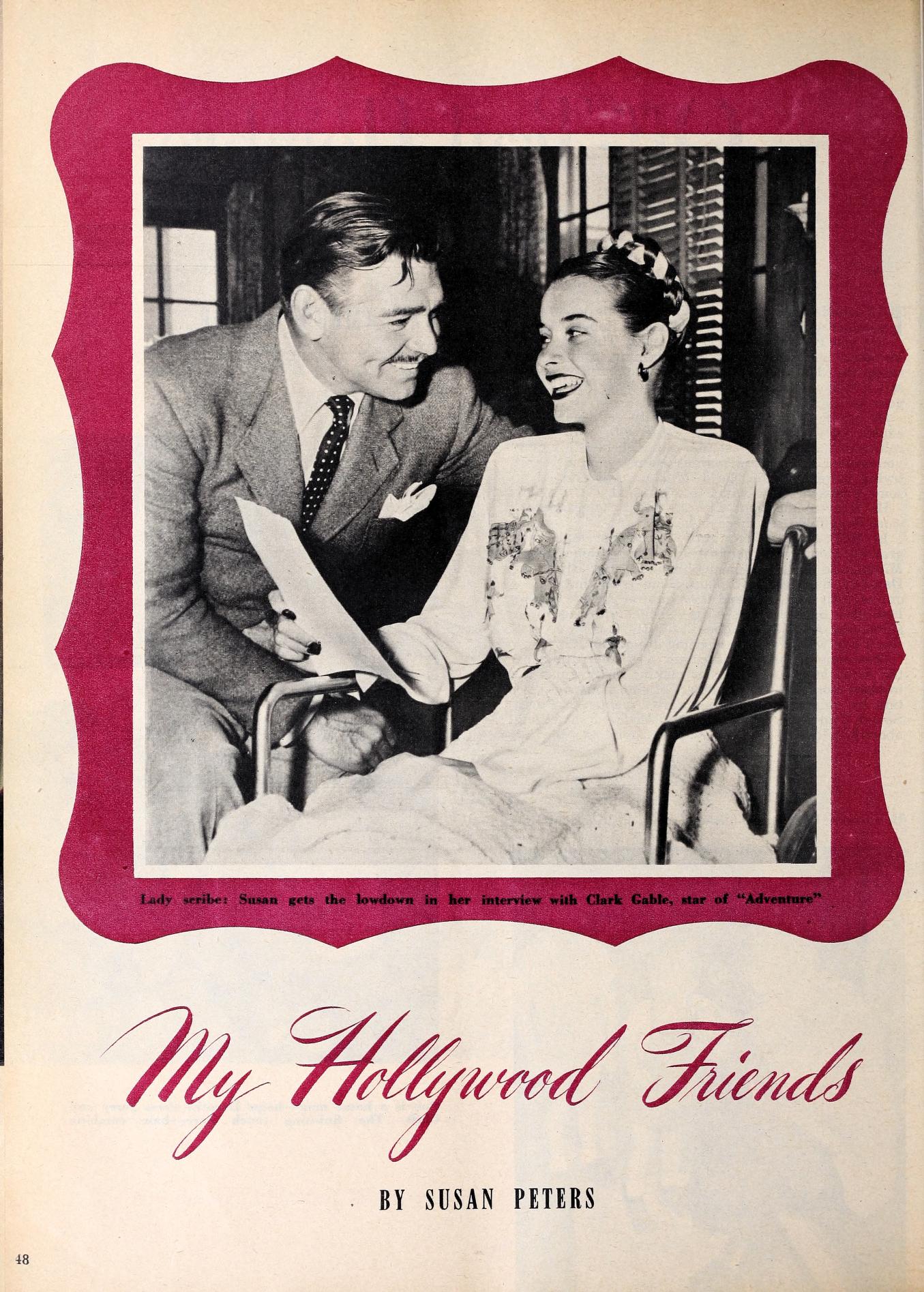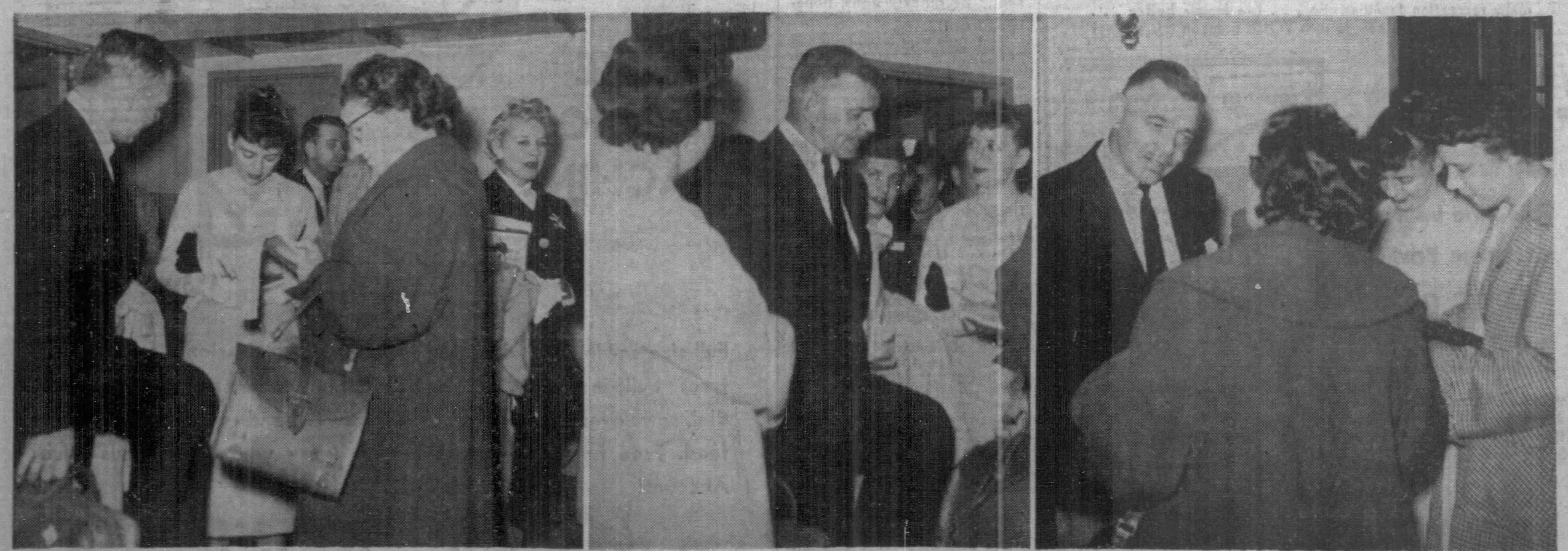{New Article} 1936: Gable Changed?

In this 1936 article, a magazine writer who first met Clark Gable in 1931 goes back to interview him now that he’s had a string of hits and an Oscar.
It is always hard for me to temper my enthusiasm in writing of Clark Gable. I happened to do the first interview with him and I may as well be frank and admit that it was done under protest. I had the average man’s prejudice against another man over whom women were raving. And I came away from that interview thoroughly sold on Clark. Women might go for him, but he was typically a man’s man.
Several things about this ruggedly handsome, smooth-shaven chap named Gable impressed me. For one thing, there was nothing about him that made me want to write, “He reminds me of a small boy.” Clark seemed matured mentally as well as physically.
Another thing that attracted me to him was the total lack of that quality frequently found in actors and which, for want of a better name, Richard Arlen calls “whimsy.” There was nothing “cute” about Clark. He was human.
He had asserted that Hollywood would never “get” him because he had been broke and friendless there and he knew how narrow a gulf separated success from failure in the movie town. He showed a willingness to face life as it is when he said that if he should start slipping tomorrow the back-slapping would stop as suddenly as it started. There was no bombast, no egotism about him.
I say this a lot, but I do love the fact that the general consensus on Clark is always the same: an unassuming, humble guy.
Today, four years later, I look at Clark and feel like giving him a pat on the back. I listen to people who say that today he is a vastly different person from the man he was then. I listen to writers who interviewed him in the old days and who tell me that they can’t touch him now with a ten-foot pole. And it all rolls off me like water off a duck’s back. I’ve waited almost a month for the interview, but what does that matter? I know that Clark, today, is fundamentally the same as he was when I first met him. There may be more character lines in his face, but fundamentally he will never change.
The interview, if you can call it that, took place on the deck of the ship used in Mutiny on the Bounty in which he plays the leader of the mutineers.
Clark came from below decks. “Hi, pal,” he said. And suddenly all the things I had been hearing about him did matter—mattered tremendously. I happen to like Clark; and when you like a person, you can’t hear him put on the pan and then casually dismiss it. You want to set him straight with everyone—so far as is possible.
“Clark,” I began earnestly, “has Hollywood got under your skin?”
He looked at me and grinned. “What do you think?”
I nodded glumly. “I think it has in a way.”
The smile faded. “What do you mean? How?”
“Oh, I don’t mean that you’re taking the back-slapping seriously—that you’re taking your success ‘big.’ I don’t mean that. But do you remember, when you first came out here, telling me that you liked interviews? You were—were grateful to people. I think you’ve changed in that way.”
“Oh, no,” said Clark positively. “I’m still grateful—and don’t ever think I’m not. I still get a kick out of seeing my name in print and feeling that, perhaps, people are interested enough in me to want to read about me. I still try to be considerate of people. But conditions have changed—and I’ve had to change with them.
“Look: For more than one year, I haven’t had a rest—not one rest—between pictures. There has never been a time during a picture when I have had three or four days off at a time and could go away on a little trip. If I have a day off, there are wardrobe fittings; the publicity department is after me for interviews or portrait sittings or publicity stunts. I can’t do all the things that are asked of me.
“In the beginning I didn’t work in so many pictures and I had only small parts. I had plenty of time to myself. It was easy to accommodate everybody. Now—don’t think I’m trying to make myself out a big shot because I’m not—the demands made on me are so many that it’s humanly impossible to accede to them all. There aren’t enough hours in the day. Do you see what I mean? That’s why people say I’m ‘difficult’ now.”
I nodded. “Do you remember telling me that when this contract was up you would never sign another?”
It was Clark’s turn to nod.
“Well,” I continued, “how is it that you’re talking a new contract with the studio?”
“Suppose,” he answered, “my contract had expired and I didn’t sign again. I’d do all the things I’ve wanted to do—see all the places I’ve always wanted to see. Maybe it would take a year. And then what? I’d be bored stiff, so I’d come back to the one thing I know—pictures. And my retirement would have been a fiasco. What’s the use of kidding myself?
“I’m going to make a stab at it, though. As soon as this picture is finished. I’m going to take three months off and go to Europe or South America. I’ll see how I like loafing.”
“But will you get any rest that way?” I argued.
“That’s what I’m worried about,” he confessed. “If, when the time comes, it looks as if I’m going to have the clothes torn off me everywhere I go, as I did in New York. I’ll just say I’m going to Europe and go to some quiet place.”
Clark constantly talked of retiring in every decade of his career. I think he always tried to be nonchalant about his acting, like he could take it or leave it, but the truth was he never really wanted to quit.
You can read the article in its entirety in The Article Archive.


